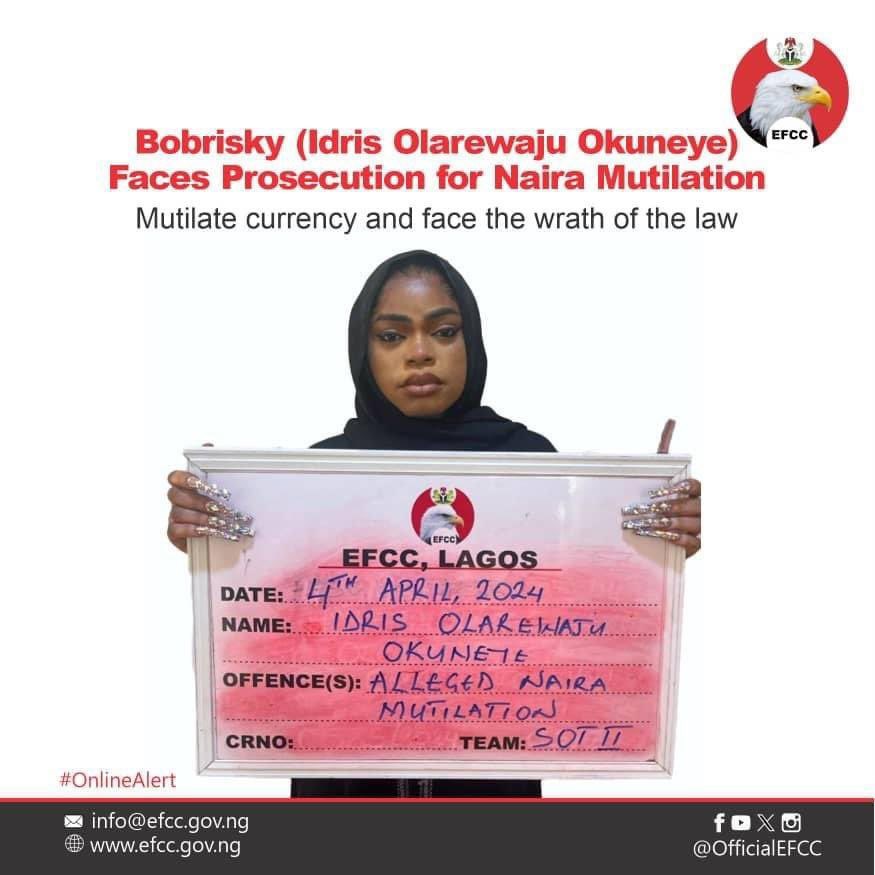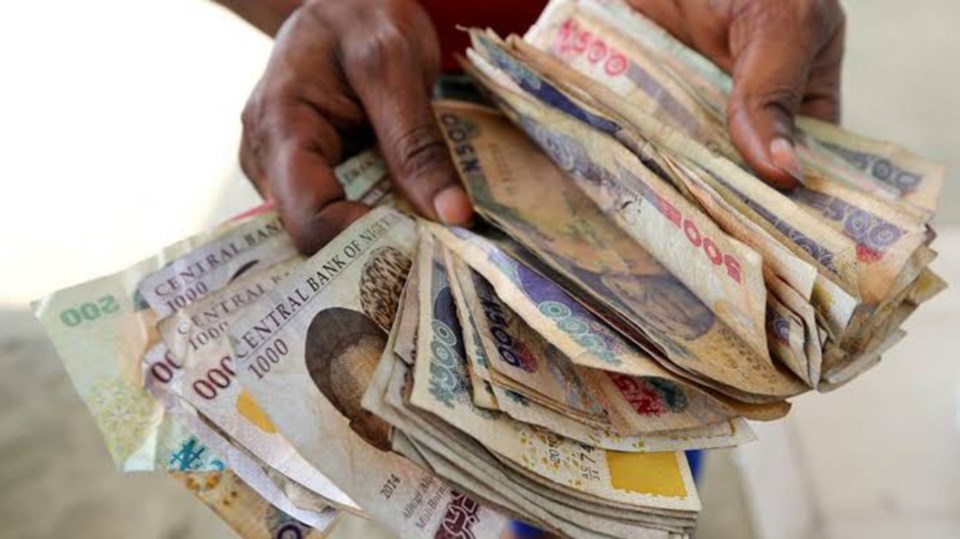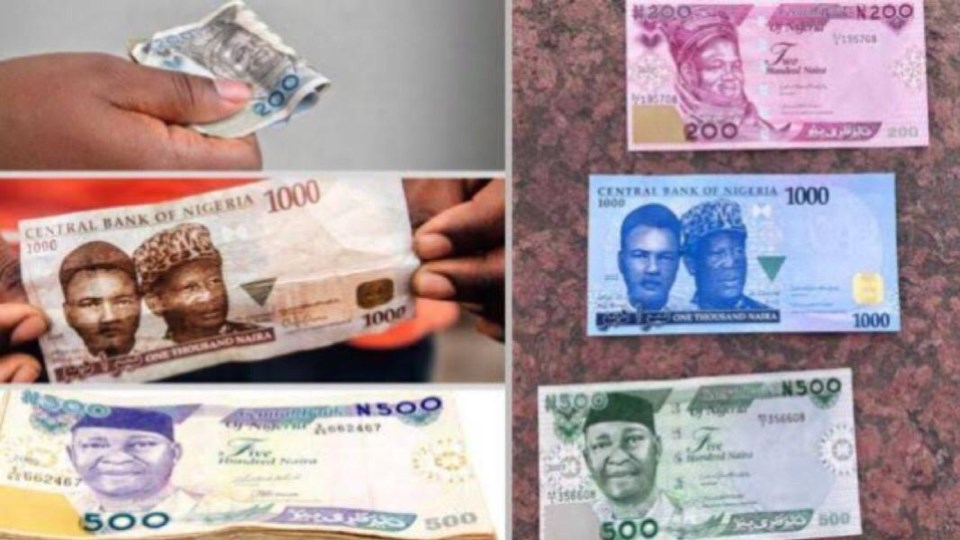THE Economic and Financial Crimes Commission (EFCC) has started clamping down on Nigerians who abuse and mutilate the Nigerian naira, and the campaign began with celebrities getting the full wrath of the law.
Recall that in February 2024, Nigerian actress, Oluwadarasimi Omoseyin, was convicted and sentenced to six months in prison for defacing the naira by spraying and stepping on them at an event in Lagos. Also, popular crossdresser, Idris Olarewaju Okuneye, also known as Bobrisky, was recently sentenced to six months in prison after pleading guilty to abusing the naira while Instagram celebrity, Cubana Chief Priest, was placed on N10m bail on Wednesday after pleading not guilty to naira abuse.
Therefore, AlimoshoToday has presented a list of activities that qualify as abusing the naira.
Note that the Central Bank of Nigeria, which is the Apex Bank in the country, introduced a Clean Notes Policy “to improve the physical appearance and lifespan of the banknotes in circulation.” As stated on the official website of CBN, the Clean Notes Policy will also “aid the longevity of the banknotes and reduce the huge cost of processing and banknote replacement.”
However, here are the ways you can abuse the naira:
SPRAYING: It is against the law to spray the Naira banknotes at events.
WRITING: It is against the law to write on banknotes.
STAPLING: It is against the law to staple the banknotes as the pins can cause corrosion of the banknotes.
TEARING: It is also against the law to tear the banknotes.
SOILING: It is against the law to dance/stamp on the Naira banknotes. Do not stain the banknotes with oil or ink, as this is also a form of defacing.
SALE: It is against the law to sell currency banknotes.
MUTILATION: A person who tampers with the Naira note or coin is guilty of an offence, punishable by law (CBN Act Section 21).
REJECTING THE NAIRA: It is against the law to reject the Naira (Section 20 subsection 5).
Similarly, in February 2023 the CBN also identified money bouquets as a type of naira abuse.



